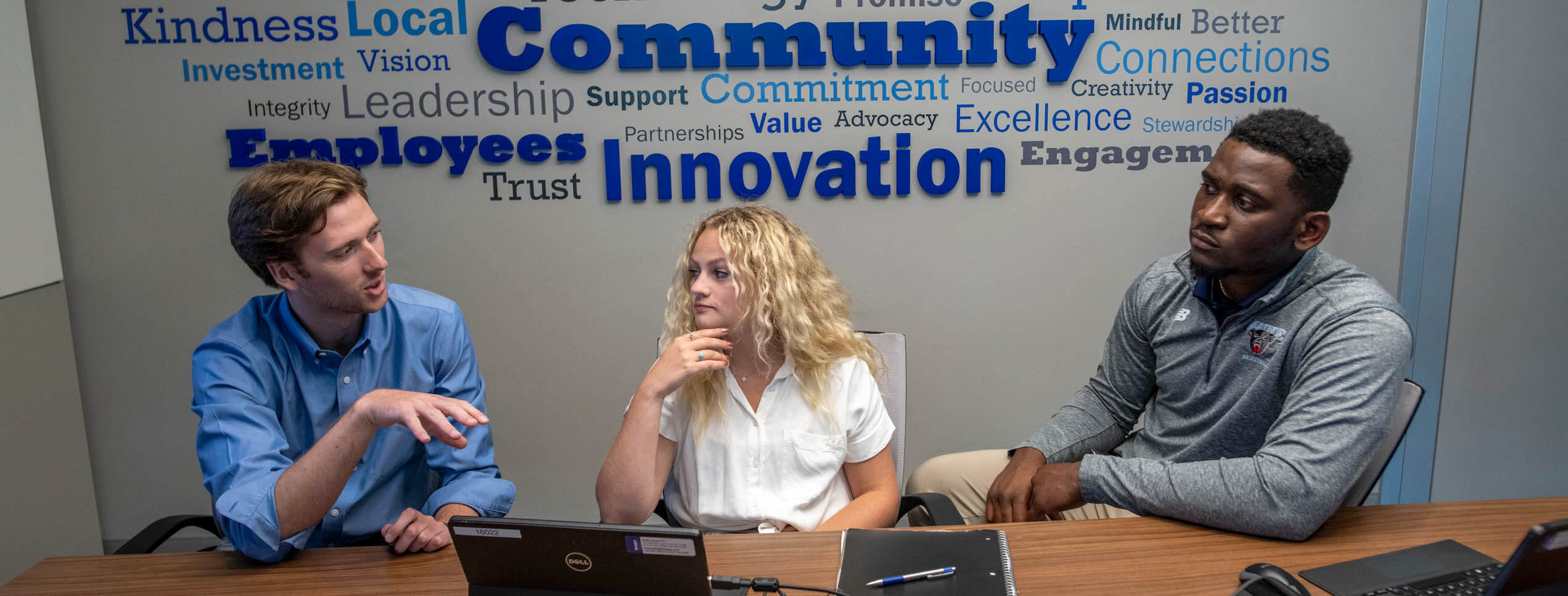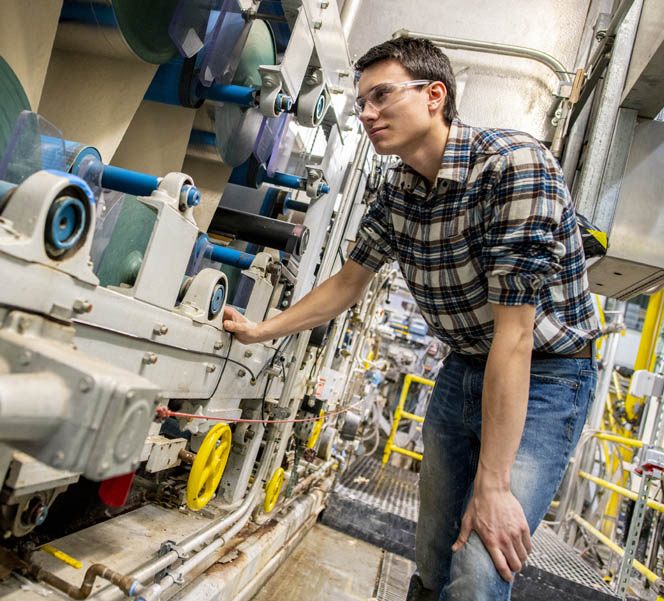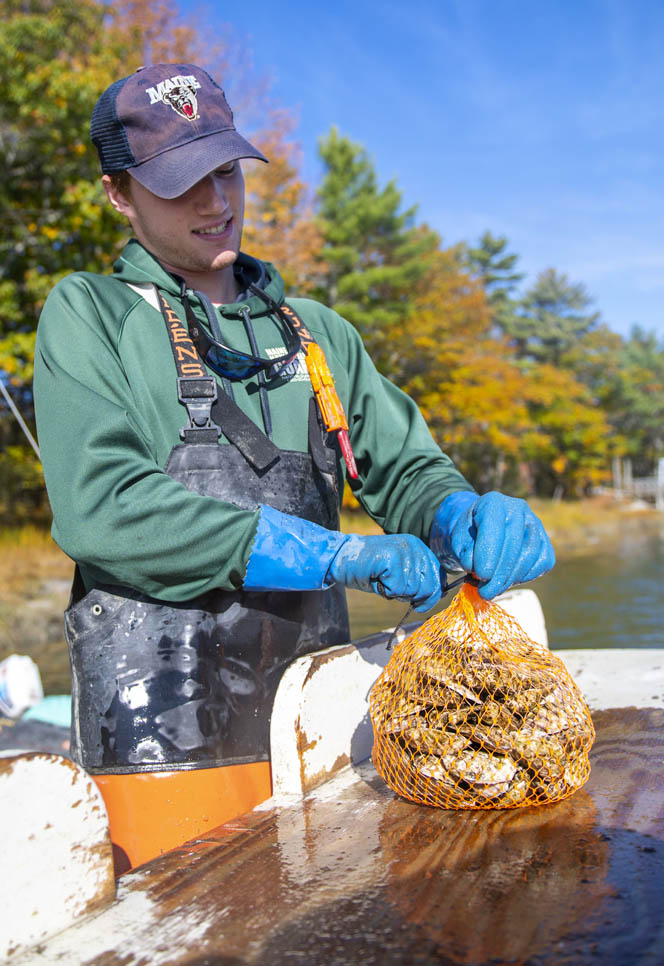
The Pulse
UMaine should be in touch with the developing needs of our students, our community, our state, and our nation. We should poise ourselves to be continually asking and evaluating, “How well are we responding to those needs?”. More specifically, we should ask, “How are we positioning ourselves to meet our students, faculty and staff where they need us? To connect with partners in research and practice in our communities at UMaine, in the state, the nation, and beyond? To attract grants and external funding? To support the state and be supported by the state in turn? To respond to needs in the current workforce as well in the communities around us?”
Education has always been about growth and insight. UMaine can be a model for the flexibility and innovation at the heart of education by listening and responding appropriately to the pulse of what our communities, society and world need.
Focus Areas
- Responding to Today’s Educational Needs
- Connecting to the State’s Needs
- Connecting to the Community’s Needs
- Connecting to National and International Needs
Recommendations
Support strategic cluster hires that can impact student learning, university research, statewide challenges and contribute to the national discourse; commit to providing resources for sustaining these interdisciplinary teams
Seize the opportunity to position UMaine’s built environment to confidently respond to the post-pandemic trends that are redefining the future of higher education.
Provide university-level training and support for increasing support for diversity, equity and inclusion across all stages of faculty and staff positions (from search to retention across a career).
UMaine must connect with and be a driver of Maine’s significant economic and research institutions that are focused on addressing climate change.
Support research and teaching approaches that involve students in activities that promote agency, curiosity, appropriate risk taking, willingness to respond to “failures” and road blocks, etc.
Develop a “learning compass” as a central part of a student’s education, which moves beyond simply having a major and includes developing human capacities such as social and emotional skills, being able to consider and engage with views and values that are different from one’s own, facing problems, expanding one’s capacity for creativity, developing analytic, critical thinking and communication skills, etc.
Universities have a key role to play in providing learners with the skillsets that will be important for the industry of tomorrow: complex reasoning, creativity, socio-emotional intelligence and sensory perception. These skills are increasingly acquired through practice and experience not in traditional classrooms.
Climate Change is the most significant issue facing the state of Maine, its economy and future. Every fishery, every farmer, natural resource economy, coastal communities will all be significant impacted by climate change in the near future. UMaine should take the national leadership role. UMaine strengths are already in the climate change area: innovation, clean energy. We need to GO BIG and communicate this more effectively.
Create a Climate Change HUB to help coordinate the relevant science and resources around the state. UMaine must connect with other research institutions state-wide to respond to climate change. For example- our response to Sea Level rise needs to connect Darling Marine Center expertise with Bigelow, GMRI in an informed way to leverage each others strengths and collaborate for the benefit of the state.
UMaine should serve as a HUB for K–12 education, connecting initiatives pertaining to teacher training and for local and state policies and conversations pertaining to public education.
Universities must look beyond current demand of the labor market which will always reflect past features and imagine what the future/s could look like for society. For example, what role is AI going to play? Critically important for universities to engage in future scanning — best kind of universities become the engineers of tomorrow’s world.
Universities must remain at the frontier in order to have a role in the future. Alternative content providers will begin to replace universities that fail to innovate.
The pandemic has changed the value proposition for the state of Maine. Real estate sales — even in the most rural counties (Washington, Lincoln) — have been unprecedented as people flock to Maine because of its perceived safety and way of life. This is an opportunity to create an identity that aligns with what is driving people to Maine.
The pandemic demonstrated the value of flexibility. Universities will need to be nimble, flexible and prepared to pilot initiatives going forward. Expand successful pilots and move on quickly from efforts that fall short.
Change the way we train teachers (especially at the K–12 level given that these teachers will shape how young people develop). Focus should be on empowering teachers to teach with creativity, ability to be flexible and to adapt to changing needs of students and populations, modeling for students how to be a learner, an explorer, a community member, a problem solver.
Focus on developing public-private partnerships and developing techniques to describe and anticipate the needs of the market.





